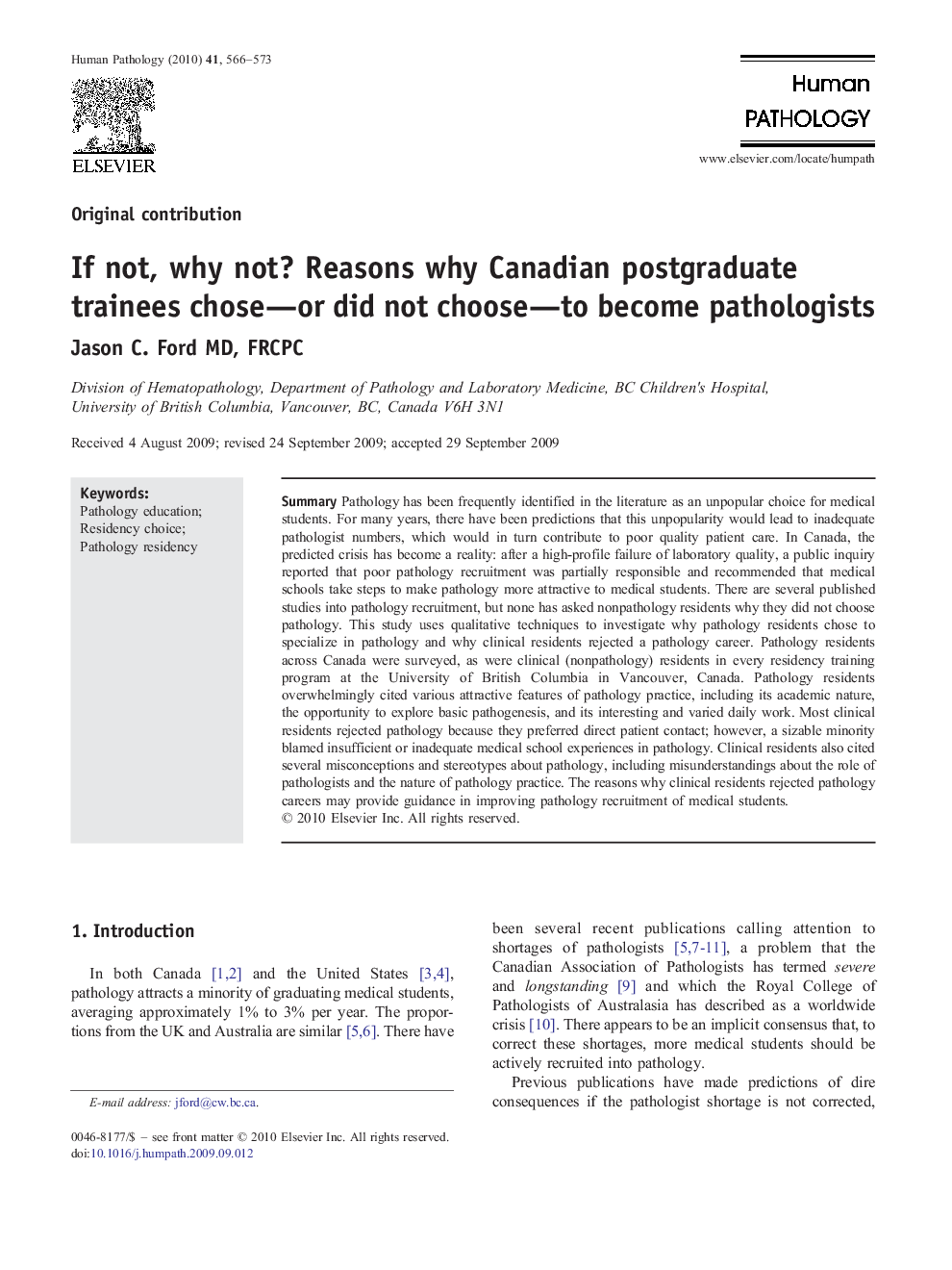| Article ID | Journal | Published Year | Pages | File Type |
|---|---|---|---|---|
| 4133946 | Human Pathology | 2010 | 8 Pages |
SummaryPathology has been frequently identified in the literature as an unpopular choice for medical students. For many years, there have been predictions that this unpopularity would lead to inadequate pathologist numbers, which would in turn contribute to poor quality patient care. In Canada, the predicted crisis has become a reality: after a high-profile failure of laboratory quality, a public inquiry reported that poor pathology recruitment was partially responsible and recommended that medical schools take steps to make pathology more attractive to medical students. There are several published studies into pathology recruitment, but none has asked nonpathology residents why they did not choose pathology. This study uses qualitative techniques to investigate why pathology residents chose to specialize in pathology and why clinical residents rejected a pathology career. Pathology residents across Canada were surveyed, as were clinical (nonpathology) residents in every residency training program at the University of British Columbia in Vancouver, Canada. Pathology residents overwhelmingly cited various attractive features of pathology practice, including its academic nature, the opportunity to explore basic pathogenesis, and its interesting and varied daily work. Most clinical residents rejected pathology because they preferred direct patient contact; however, a sizable minority blamed insufficient or inadequate medical school experiences in pathology. Clinical residents also cited several misconceptions and stereotypes about pathology, including misunderstandings about the role of pathologists and the nature of pathology practice. The reasons why clinical residents rejected pathology careers may provide guidance in improving pathology recruitment of medical students.
